In the competitive landscape of today’s business world, data-driven decision-making is critical for staying ahead. Market research relies on gathering extensive data from online sources, a task often complicated by website restrictions and security protocols. Proxies, like those offered by providers such as Proxy IPv4, have become invaluable tools for overcoming these challenges. This article examines how proxies can optimize market research efforts, ensuring businesses maintain a competitive edge.
What Are Proxies and How Do They Work?
A proxy server acts as an intermediary between a user’s device and the internet. When a request is made online, the proxy routes the request through its server, masking the user’s original IP address and replacing it with one of its own. This function allows for anonymous browsing, bypassing of geo-restrictions, and better management of internet traffic. For market researchers, proxies provide several advantages that streamline data collection and analysis.
Benefits of Using Proxies in Market Research
1. Accessing Geo-Restricted Data
In market research, access to diverse data sources is essential. However, some information may be restricted based on the user’s geographic location. Proxies allow researchers to circumvent these restrictions by using IP addresses from various regions. This enables businesses to collect data globally, offering a more comprehensive view of market trends, consumer behavior, and preferences across different regions.
2. Maintaining Anonymity and Protecting Privacy
One of the primary advantages of using proxies is the ability to maintain anonymity while conducting online research. By hiding the user’s real IP address, proxies prevent websites from tracking browsing activities. This is particularly valuable in competitive analysis, where discreet data collection is critical to avoid alerting competitors. Anonymity helps protect the integrity of the research, ensuring that collected data remains unbiased and unaffected by external influences.
3. Enhancing Web Scraping Efficiency
Web scraping is a common method used to gather data from websites, but it can be challenging due to IP bans or restrictions, especially when scraping at scale. Proxies make web scraping more efficient by distributing requests across multiple IP addresses, minimizing the risk of detection and blocking. This enables continuous, large-scale data collection, allowing businesses to stay updated on market dynamics, competitor activities, and consumer trends without interruptions.
4. Ensuring Data Accuracy and Reliability
Proxies enable researchers to access the same websites from different IP addresses, allowing for cross-verification of data from multiple sources. This approach enhances data accuracy by identifying discrepancies and inconsistencies, providing a more reliable foundation for decision-making. By validating information from various perspectives, businesses can ensure their strategies are based on accurate and dependable insights.
5. Monitoring Competitor Strategies
Keeping an eye on competitors is crucial for maintaining a competitive advantage. Proxies allow businesses to discreetly monitor competitor websites and online activities, such as price changes, promotional campaigns, and customer feedback. By gathering this information, companies can refine their strategies, improve their offerings, and respond proactively to market shifts.
Types of Proxies for Market Research
Residential Proxies
These proxies use IP addresses assigned by internet service providers (ISPs) to homeowners, making them appear as regular users. They are ideal for accessing geo-restricted content and are less likely to be detected during data collection.
Datacenter Proxies
Datacenter proxies are provided by data centers and offer high-speed connections not affiliated with ISPs. They are suitable for large-scale web scraping and tasks that require fast data access.
Mobile Proxies
Mobile proxies use IP addresses from mobile networks, mimicking traffic from mobile devices. They are useful for understanding mobile user behavior and testing mobile-optimized content.
Implementing Proxies in Market Research
Choosing the Right Proxy Type
Selecting the appropriate proxy type is critical to the success of any market research project. Residential proxies are often chosen for high anonymity and accessing local content, while datacenter proxies are best for high-speed, large-scale data scraping. Mobile proxies are ideal for researching mobile traffic and understanding mobile user behaviors.
Regular IP Address Rotation
To avoid detection, it is essential to rotate IP addresses regularly. This practice distributes web scraping activities across multiple addresses, reducing the risk of triggering security measures on target websites and ensuring uninterrupted access to data.
Using Secure Connections
It is crucial to secure data traffic with encrypted connections, such as HTTPS, to protect the confidentiality and integrity of market research activities. Reputable proxy providers, like Proxy IPv4, ensure secure connections, safeguarding data from potential breaches.
Integrating Proxies with Research Tools
Many market research tools offer built-in support for proxies, allowing users to benefit from the anonymity and efficiency that proxies provide directly within their platforms. This integration streamlines data collection, analysis, and reporting processes.
Best Practices for Using Proxies in Market Research
Ethical Data Collection
While proxies enhance data collection capabilities, it is important to follow ethical practices and respect the terms of service of target websites. Unauthorized data scraping can lead to legal consequences and harm a company’s reputation. Always ensure compliance with relevant data privacy laws and ethical standards.
Monitoring Proxy Usage
Regular monitoring of proxy usage is vital to maintain optimal performance and security. This includes keeping an eye out for unusual activity, managing IP rotations, and ensuring adherence to data protection regulations.
Enhancing Security with Additional Measures
Proxies should be part of a broader security strategy that includes firewalls, anti-virus programs, and intrusion detection systems. This multi-layered approach helps protect against potential cyber threats and vulnerabilities.
Conclusion
Proxies are indispensable tools in modern market research, offering enhanced access to data, improved anonymity, and more efficient data collection capabilities. By choosing the right type of proxy, implementing them strategically, and adhering to ethical standards, businesses can gain valuable insights that drive informed decisions and maintain a competitive edge. With the help of reliable providers like Proxy IPv4, companies can navigate the challenges of online data collection and optimize their market research efforts.

